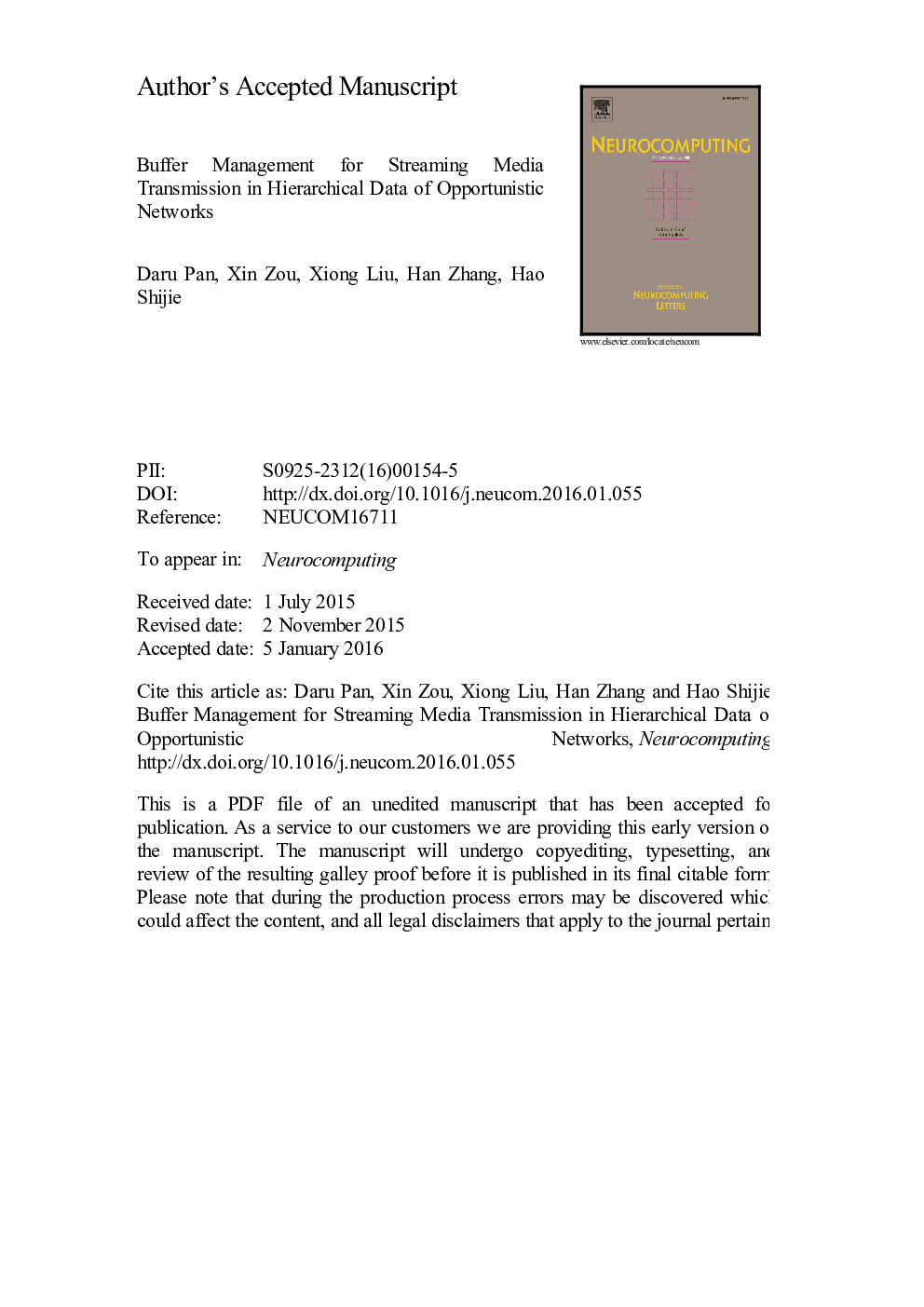| Article ID | Journal | Published Year | Pages | File Type |
|---|---|---|---|---|
| 6865389 | Neurocomputing | 2016 | 28 Pages |
Abstract
An opportunistic network is a kind of novel and self-organizing mobility network with DTN (Delay Tolerant Networks) features, which has no fixed topological structure and transfers messages using the opportunity of nodes encountering. Transmitting steaming media in such a network faces significant challenge, since the topology between source node and destination node is variable. In order to increase the delivery ratio, an opportunistic network employs the message redundancy mechanism, which leads to the existing of multiple copies of messages in different routes at the same moment. These duplicates tend to jam the network, block later messages and jeopardize network performance due to the limited buffer resource of nodes. In this context, we propose a novel buffer management algorithm for streaming media (BMSM) in an opportunistic network by combining the characters of opportunistic networks with the feature of hierarchical data encoding of H.264 streaming media. The BMSM algorithm fully utilizes the real-time dynamic parameters of the network, i.e., remaining living time and the estimation of message copies, and it automatically assigns a priority parameter to a message to determine its transitivity and priority in the node׳s buffer sequence based on the hierarchical property of the messages. By combining the mobility of nodes, a new queuing strategy for managing the buffer is also proposed in BMSM, in which a message is forwarded preferentially to the interacting closely truck nodes when it is at the head of the sequence. Simulation results show that the proposed BMSM algorithm effectively improves the delivery rate and limited the network overhead ratio and thereby ensures the continuous media streams.
Related Topics
Physical Sciences and Engineering
Computer Science
Artificial Intelligence
Authors
Daru Pan, Xin Zou, Xiong Liu, Han Zhang, Shijie Hao,
